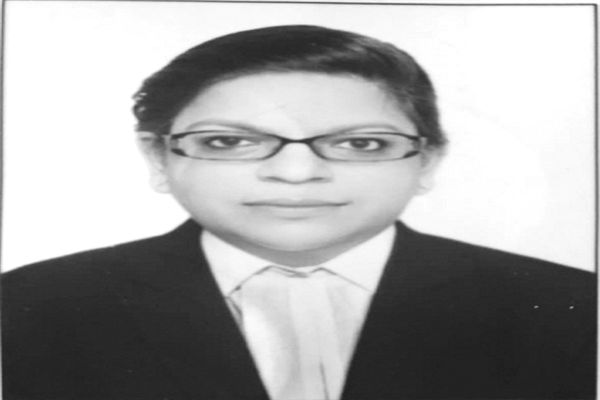Justice P.N. Bhagwati the 17th Chief Justice of India in the landmark case of SP Gupta vs Union of India had rightly remarked –
“The court has to innovate new methods and strategies to provide access to justice to large masses of people who are denied basic human rights, to whom freedom and liberty have no meaning.”
It is an indisputable fact that the concept of PILs was introduced by the Apex court in order to reach out to those who cannot represent themselves or for that matter even reach the courts of law. However, there is indeed such a thing as having too much of a good thing and it was soon observed that even for a well thought out concept like that of a PIL, the errant factions of the public found out ways and means to misuse it.
Despite its intended purpose of empowering and strengthening the underprivileged in society, the PIL has been frequently misused as a weapon and has often wasted the precious time of courts, more so in the recent times where in a recent ruling, The Bombay High Court has lamented the increasing number of frivolous PIL being filed in courts and echoed the sentiments of the Supreme Court that such PILs are the bane on our judicial system, in fact, terming one such PIL as a classic case of gross abuse of the court process, a division bench of Justices GS Patel and SG Dige went as far ahead as directing that a pre-hearing deposit of ₹3 lakh made by the petitioner in that PIL be converted to costs and paid to a cancer institute!
This is not the first case where a frivolous PIL has been fined, way back in 2017 too, The Supreme Court, while dismissing a frivolous petition had commented on how the concept of PIL will have to be revisited due to its misuse. It had also talked about how the concept was introduced to safeguard the poor, the oppressed, and the needy whose fundamental rights are frequently infringed upon and violated and whose grievances remain unrepresented, unheard, and unnoticed, but how it is now being abused to achieve political mileage and popularity.
Black’s law dictionary states that- ‘ A Public Interest Litigation refers to such legal action, which is initiated in a court of law in order to enforce public interest or general interest in which the common people have some interest, pecuniary or general by which their legal right or liability is affected.’
Simply put, a PIL is a tool to safeguard the socially disadvantaged communities who cannot represent themselves and claim justice in a court of law. People who are not directly affected can now file and fight cases on behalf of these people, the only condition being that the issue should pertain to the general welfare of the people and should not be for the private interest of the petitioner.
This concept also relaxed the erstwhile principle of locus standi, which meant the capacity of a person to bring an action against something or someone, i.e. a person had to be personally aggrieved to bring an action against another. Now, a PIL could be filed even though the issue does not directly affect the petitioner.
The origin of this concept can be traced to a news report which talked about the hardships faced by undertrial prisoners in Bihar who had to spend years in jail without being punished and the same caught the eye of a lawyer who then filed a petition before the Supreme Court in order to defend these undertrial prisoners.
This case, Hussainara Khatoon v. State of Bihar (1979), became the first PIL to be heard. In 1980, the case of Sunil Batra v. Delhi Administration was taken up, in which an inmate of the Tihar jail sent a scribbled piece of paper to Justice Krishna Iyer, complaining about physical torture of prisoners in Tihar. This note too was converted into a PIL.
Over the years, the number of PILs filed has only gone up with many public-spirited citizens and social activists stepping up to help the disadvantaged, however, this trend is also accompanied with too many frivolous matters that are filed under the garb of PILs but the real intent behind the same is some vested interest or the other.
Some file PIL as a tool to harass other people as it is much cheaper as compared to a private litigation and hence profitable in cases where people are looking out to settle some personal issue or serve some political interest.
Such is the misuse of PILs in the recent years that Solicitor General, Tushar Mehta even called them, “professional PIL shops” and called for them to be abrogated. He even pointed out that in order to furnish replies for these frivolously filed PILs, the government officials end up wasting their precious time and this can be harmful to the country. On a later date, he also called them “self-employment generating petitions” on which the court should not waste time.
Another reason for filing these frivolous PILs is the publicity that they generate, in fact the court has even time and again went as far ahead as calling them “publicity interest litigation” stressing how such petitions instead of fulfilling the objective of PILs damage the public good.
An avalanche of fake PILs have been filed in the recent past including one that demanded that the High Court may apply its power under Article 226 of the Indian Constitution to issue a writ of Mandamus directing the respondents to issue orders to conduct compulsory medical tests of candidates who were contesting in the Tamil Nadu Legislative Assembly Elections that were in process. The same was done presumably to protect the 6,29,43,512 voters from being infected with COVID-19!
The court, holding that there was no basis for such a petition and that it was completely frivolous asked the petitioner to be more responsible before filing such petitions in court in future. Not only was the petition dismissed with costs, the petitioner was even banned by the court from filing petitions for a period of one year without taking prior leave of the Bench!
In another matter, The Delhi High Court dismissed a petition which alleged that the Government of Delhi was misusing public money and further prayed for an investigation into the funds collected by the Delhi Government for Covid-19 relief. The petitioner had made no effort to find out the information using the Right to Information Act, 2005, and had merely relied on a tweet posted by someone else. The court pulled up the petitioner for not doing any homework before filing the petition and imposed a cost of Rs 50,000 for misusing the PIL.
In another peculiar petition that had initially been filed before the Delhi High Court but later taken over by The Supreme Court, a challenge had been made against the possibility of the Central Vista project and the way clearances were obtained for environment, heritage, and land use matters. The Petitioner had alleged that this was a matter of high political significance which required judicial scrutiny. The Supreme Court lamented and called this a misuse of the concept of PIL. It reiterated the intention behind PIL and said that PIL was not meant to make the judiciary the superlative authority over everyday governance but to open the doors of constitutional courts for those humans who were facing injustice and to secure their rights.
Time and again the Constitutional courts have reiterated that PILs are meant as a tool for gaining justice and should not be used as weapons for private gain. They have followed an unwritten rule of snipping in the bud any PIL that seems to be politically motivated or filed for the purpose of a personal gain. Off late, the highlighting of such frivolous PILs by the social media have also gone a long way in discouraging people from filing the same. Lawyers after taking into account the strong language used by the courts in their orders, and also noting that certain people have been banned from filing any petition for some time have started shying away from filing PILs that are frivolous or far-fetched.
It has been rightly said that- ‘In the long run, the public interest depends on private virtue!’. If in some cases, certain members of the public forget that they are misusing the weapon that the law has put in their hands, it becomes the duty of the courts to remind them of this fact. It cannot be denied that the Public Interest Litigation is an important component of judicial activism which further strengthens the judiciary and encourages it to come to the rescue of its people. However, it becomes our duty to see that the concept is wisely used and is not abused to make personal gains.
Recent years have seen examples of such abuse and exploitation of the PIL, which should serve as a deterrent to prevent similar incidents in the future. If used in the correct manner and for the right causes, PIL can prove to be an asset to the people. New ways and methods should be formulated to sieve out frivolous petitions so that justice is served fairly and well within time. Even though The Supreme Court has laid down guidelines to be followed with respect to the filing of Public Interest Litigations, it remains to be seen if the same proves to be a deterrent or not.








